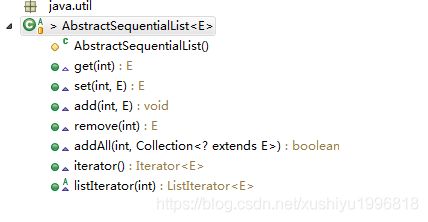- Linux内核网络源码分析——发送数据
hellolwl
Android/Linuxlinux内核网络structoutputsocketconstructor
原文地址:http://www.penna.cn/blog/?p=218UDP发送:|sys_writefs/read_write.c|sock_writevnet/socket.c|sock_sendmsgnet/socket.c|inet_sendmsgnet/ipv4/af_inet.c|udp_sendmsgnet/ipv4/udp.c|ip_build_xmitnet/ipv4/ip_o
- Java架构师成长之路
hweiyu00
分享spring微服务springcloudjava
概述本教程主要从6个方面,全面讲解Java技术栈的知识。1.性能调优深入理解MySQL底层原理、索引逻辑,数据结构与算法。使用Explain进行优化分析MVCC原理剖析日志机制解析2.框架源码掌握Spring底层原理带你手写一个Spring解析IOC、AOP源码、以及事务原理3.并发编程剖析Java底层锁机制CAS、JUC工具使用、AQS源码分析以及并发的集合类的讲解4.分布式开发剖析分布式中使用
- 漫谈JVM
weixin_34111790
运维javapython
2019独角兽企业重金招聘Python工程师标准>>>背景介绍创建了一个技术类公众号:一起源码分析,里面会分享最新的开源代码、源码解读、开发技巧等,欢迎大家关注。JVM已经是Java开发的必备技能了,JVM相当于Java的操作系统。JVM,javavirtualmachine,即Java虚拟机,是运行javaclass文件的程序。Java代码经过Java编译器编译,会编译成class文件,一种平台
- C语言,记录一次局部变量被意外修改的问题
三日沐水
嵌入式全套学习教程c语言
背景:单片机开发过程中,我在函数体内(begin_face_record)定义了一个局部变量data_length,在使用的时候,该局部变量一直别改变,每次调用其他函数,例如c库里面的函数memcpy,不知什么情况data_length值就会被改变。1、源码分析voidmain(void){init_gpio();init_face();face_power_up();begin_face_rec
- Netty源码分析之Reactor线程模型详解
Java-进阶架构师
javajava编程java后端java-ee
在分析源码之前,我们先分析,哪些地方用到了EventLoop?NioServerSocketChannel的连接监听注册NioSocketChannel的IO事件注册NioServerSocketChannel连接监听在AbstractBootstrap类的initAndRegister()方法中,当NioServerSocketChannel初始化完成后,会调用case标记位置的代码进行注册。f
- cv2 orb 图像拼接_图像拼接Opencv源码重构
是佐罗而非索隆
cv2orb图像拼接
请看赵春江https://me.csdn.net/zhaocj的主页,他已经对Opencv图像拼接流程中的代码做了很详细的解释。前人栽树,后人乘凉。一.本文所做的事1.重构了Opencv图像拼接的源代码,整个代码是面向过程的;2.在赵春江源码分析基础上,对一些细节部分进行说明。代码链接:https://github.com/mhhai/ImageStitch二.特征点检测一切起源于这段代码Ptrf
- Lodash源码分析-every,some,size,includes
初学者7.
Loadsh源码分析javascript前端
collection相关的函数,collection指的是一组用于处理集合(如数组或对象)的工具函数。lodash源码研读之every,some,size,includes一、源码地址GitHub地址:GitHub-lodash/lodash:AmodernJavaScriptutilitylibrarydeliveringmodularity,performance,&extras.官方文档地址
- Lodash源码分析-uniq,uniqBy,uniqWith
初学者7.
Loadsh源码分析javascript前端
lodash源码研读之uniq,uniqBy,uniqWith一、源码地址GitHub地址:GitHub-lodash/lodash:AmodernJavaScriptutilitylibrarydeliveringmodularity,performance,&extras.官方文档地址:Lodash官方文档二、结构分析uniq,uniqBy,uniqWith基于baseUniq模块。三、函数介
- http框架核心之ngx_http.c源码分析
qiuhui00
nginx源码分析nginx源码分析http框架
ngx_http.c内主要实现了一个模块:ngx_http_module。ngx_http_module是nginx的http框架的一部分,它是所有http模块能够被加载的唯一入口,承担了http块配置解析,合并,以及http框架及其相关数据结构的初始化。它本身是NGX_CORE_MODULE类型,只有一个指令,就是http,如下所示:staticngx_command_tngx_http_com
- [HelloCTF]PHPinclude-labs超详细WP-Level 2-data协议
Haicaji
WPphp网络安全web安全
源码分析重点关注这两行代码echoinclude("data://text/plain;base64,4pedKCrigbDilr/igbAqKeKXnEhlbGxvLUNURnd3");isset($_GET['wrappers'])?include("data://text/plain".$_GET['wrappers']):'';发现这里出现了data协议data://-数据流(RFC239
- 【Vue.js 2.x源码解析】第18章 从Vue源码分析计算属性与侦听属性的本质差别
代码简单说
教你读懂Vue2.x源码vue.js前端javascript
想深入了解Vue2.x源码底层原理实现,从编译系统、渲染系统到响应式系统vue-router和vuex等实现方式可以关注『Vue.js2.x源码精讲』专栏或查看专栏目录了解详情从Vue源码分析计算属性与侦听属性的本质差别计算属性(Computed)——了解它,你就能高效利用它`defineComputed`和`createComputedGetter`侦听属性(Watch)——灵活监听变化`wat
- Redis 源码分析-内部数据结构 quicklist
笨手笨脚の
#Redisredis数据结构数据库quicklist链表快速链表ziplist
Redis源码分析-内部数据结构quicklistquicklist是Redis对外暴露的list数据结构的内部实现,经常被当作队列或栈使用,我们可以从常用的一些api上先思考一下它的结构最常用的就是lpush、lpop、rpush、rpop,同时它也支持lindex查询某元素在list中的索引,linsert在指定元素旁边插入新元素。从头、尾节点的push、pop来看,这就是双向链表最优秀的设计
- Redis 源码分析-内部数据结构 robj
笨手笨脚の
#Redisredis数据结构数据库redisObject44字节embStrraw
Redis源码分析-内部数据结构robjRedis中,一个database内的这个映射关系是用一个dict来维护的(ht[0])。dict的key固定用一种数据结构来表达就够了,即动态字符串sds。而value则比较复杂,为了在同一个dict内能够存储不同类型的value,这就需要一个通用的数据结构,这个通用的数据结构就是robj(全名redisObject)。#defineLRU_BITS24/
- 【QT教程】QT6硬件数据库编程 QT硬件数据库
QT性能优化QT原理源码QT界面美化
qtqt6.3qt5c++QT教程
QT6硬件数据库编程使用AI技术辅助生成QT界面美化视频课程QT性能优化视频课程QT原理与源码分析视频课程QTQMLC++扩展开发视频课程免费QT视频课程您可以看免费1000+个QT技术视频免费QT视频课程QT统计图和QT数据可视化视频免费看免费QT视频课程QT性能优化视频免费看免费QT视频课程QT界面美化视频免费看1QT6硬件数据库编程基础1.1QT6数据库引擎概述1.1.1QT6数据库引擎概述
- ngx_conf_read_token
若云止水
nginxc语言
Ubuntu下nginx-1.24.0源码分析-ngx_conf_read_token-CSDN博客staticngx_int_tngx_conf_read_token(ngx_conf_t*cf){u_char*start,ch,*src,*dst;off_tfile_size;size_tlen;ssize_tn,size;ngx_uint_tfound,need_space,last_spa
- 智能车辆控制技术:MPC与轨迹规划实战项目
柚木i
本文还有配套的精品资源,点击获取简介:本压缩包集合了车辆转向控制与轨迹规划的MATLAB代码,包含模型预测控制(MPC)策略、MPT工具箱应用、车辆动力学模型构建、轨迹规划实现、mp-QP算法应用及MATLAB编程实践。旨在通过源码分析,提供智能车辆控制技术的深入学习与研究平台,涉及横向和纵向运动控制、系统模型的定义、控制策略的制定及仿真流程。1.模型预测控制(MPC)基础与应用模型预测控制(MP
- 【bluedroid】A2dp Source播放流程源码分析(1)
byte轻骑兵
解读Android通信协议蓝牙BluedroidC++
在蓝牙音频传输领域,A2DP(AdvancedAudioDistributionProfile,高级音频分发协议)扮演着关键角色,它能够实现高质量音频(如立体声音乐)通过蓝牙在不同设备间的传输。在Android系统所采用的Bluedroid蓝牙协议栈里,A2DPSource承担着音频流发送的重任,将音频数据传输至A2DPSink(像车载音响、蓝牙耳机等接收设备)。一、概述Bluedroid作为An
- 【Bluedroid】A2dp Sink初始化源码分析
byte轻骑兵
解读Androidc++通信协议蓝牙Bluedroid
在Bluedroid蓝牙协议栈中,A2DP(AdvancedAudioDistributionProfile)Sink负责接收来自A2DPSource(如手机、音乐播放器等)的音频流,并将其播放到本地设备(如车载音响、蓝牙耳机等)上。A2DPSink的初始化是确保A2DPSink服务能够正确运行的关键步骤。一、A2DPSink初始化流程系统启动或用户请求:当系统启动或用户请求启动A2DPSink服
- Android Retrofit 框架适配器模块深入源码分析(五)
&有梦想的咸鱼&
AndroidRetrofit原理androidretrofit
AndroidRetrofit框架适配器模块深入源码分析一、引言在Android开发中,网络请求是一个常见且重要的功能。Retrofit作为一个强大的网络请求框架,以其简洁的API和高度的可定制性受到了广泛的欢迎。适配器模块(CallAdapter)是Retrofit框架中非常重要的一部分,它负责将Call对象转换为其他类型,如Observable、Completable、Single等,从而实现
- Java多线程与高并发专题——阻塞和非阻塞队列的并发安全原理是什么?
黄雪超
技术基础java开发语言并发编程
引入之前我们探究了常见的阻塞队列的特点,在本文我们就以ArrayBlockingQueue为例,首先分析BlockingQueue,也就是阻塞队列的线程安全原理,然后再看看它的兄弟——非阻塞队列的并发安全原理。ArrayBlockingQueue源码分析我们首先看一下ArrayBlockingQueue的源码,ArrayBlockingQueue有以下几个重要的属性:/***用于存储队列元素的数组
- Android art monitor_android.cc 源码分析
月盈五
android
源码分析#include"monitor.h"#include#include#include#include#include#include"art_method.h"#include"jni/jni_env_ext.h"#include"palette/palette.h"#include"thread.h"//定义了一个日志标签EVENT_LOG_TAG_dvm_lock_sample,用于
- Android soong/ui/build/finder.go FindSources源码分析
月盈五
androiduigolang
//FindSourcessearchesforsourcefilesknowntoandwritesthemtothefilesystemfor//uselater.//在一个给定的上下文中,使用配置信息和finder.Finder实例来搜索特定类型的源文件,并将这些文件的路径列表写入到文件系统中,以便后续使用funcFindSources(ctxContext,configConfig,f*f
- DUBBO源码分析七---服务调用过程
qq_51562781
DUBBO学习zookeepervue.jsjava
"2021SC@SDUSC"1.简介在前面的文章中,我们分析了DubboSPI、服务导出与引入、以及集群容错方面的代码。经过前文的铺垫,本篇文章我们终于可以分析服务调用过程了。Dubbo服务调用过程比较复杂,包含众多步骤,比如发送请求、编解码、服务降级、过滤器链处理、序列化、线程派发以及响应请求等步骤。限于篇幅原因,本篇文章无法对所有的步骤一一进行分析。本篇文章将会重点分析请求的发送与接收、编解码
- DUBBO源码分析八---服务调用过程
qq_51562781
DUBBO学习rpc网络协议网络
"2021SC@SDUSC"2.3.2.2调用服务本小节,我们从ChannelEventRunnable开始分析,该类的主要代码如下:publicclassChannelEventRunnableimplementsRunnable{privatefinalChannelHandlerhandler;privatefinalChannelchannel;privatefinalChannelSta
- 面试基础---分布式架构基础消息队列Kafka vs RabbitMQ vs RocketMQ 对比
WeiLai1112
分布式架构面试分布式架构java后端dubbospringboot
分布式架构消息队列深度解析:KafkavsRabbitMQvsRocketMQ引言在高并发、高可用的分布式系统中,消息队列是实现异步通信、流量削峰、系统解耦的核心组件。Kafka、RabbitMQ和RocketMQ是当前最主流的消息中间件,各自在性能、可靠性、生态支持等方面有独特优势。本文将深入探讨三者的设计原理、核心特性及适用场景,结合电商、金融等实际案例与源码分析,为技术选型提供全面指导。1.
- Jquery源码分析
W_wjl1900
前端学习jquery源码
转载地址原作者博客/*!*jQueryJavaScriptLibraryv1.10.2*http://jquery.com/**IncludesSizzle.js*http://sizzlejs.com/**Copyright2005,2013jQueryFoundation,Inc.andothercontributors*ReleasedundertheMITlicense*http://jq
- 【FFmpeg】AVpacket中解析出Nalu
gma999
ffmpeg
概述项目中遇到的一个难题,即需要从RTSP流地址中解析出来Nalu,然后对Nalu进行封包发送到GB28181平台。本文仅仅总结如何利用FFmpeg库中的函数通过AVpacket解析出来Nalu的可行性以及方法。如果是非嵌入式设备,也可以自己搭建一个小型RTSP服务器来实现,其中各种功能也可以自行控制,后面文章再进行总结源码分析可行性分析FFmpeg库中没有找到直接解析出来的Nalu的方法,如果无
- Flutter中网络图片加载和缓存
Flutter编程指南
FlutterFlutterAPPDarthttp跨平台技术
文章目录前言重温小部件ImageImage.network源码分析实际问题解决方案代码实现自定义ImageProvider使用写在最后前言应用开发中经常会碰到网络图片的加载,通常我们会对图片进行缓存,以便下次加载同一张图片时不用再重新下载,在包含有大量图片的应用中,会大幅提高图片展现速度、提升用户体验且为用户节省流量。Flutter本身提供的ImageWidget已经实现了加载网络图片的功能,且具
- Ubuntu 下 nginx-1.24.0 源码分析 - ngx_conf_param
若云止水
ubuntunginx运维
ngx_conf_param声明在src/core/ngx_conf_file.hchar*ngx_conf_param(ngx_conf_t*cf);实现在src\core\ngx_conf_file.cchar*ngx_conf_param(ngx_conf_t*cf){char*rv;ngx_str_t*param;ngx_buf_tb;ngx_conf_file_tconf_file;pa
- Ubuntu 下 nginx-1.24.0 源码分析 - ngx_core_module
若云止水
ubuntunginx数据库
定义在src\core\nginx.cngx_module_tngx_core_module={NGX_MODULE_V1,&ngx_core_module_ctx,/*modulecontext*/ngx_core_commands,/*moduledirectives*/NGX_CORE_MODULE,/*moduletype*/NULL,/*initmaster*/NULL,/*initmo
- ASM系列四 利用Method 组件动态注入方法逻辑
lijingyao8206
字节码技术jvmAOP动态代理ASM
这篇继续结合例子来深入了解下Method组件动态变更方法字节码的实现。通过前面一篇,知道ClassVisitor 的visitMethod()方法可以返回一个MethodVisitor的实例。那么我们也基本可以知道,同ClassVisitor改变类成员一样,MethodVIsistor如果需要改变方法成员,注入逻辑,也可以
- java编程思想 --内部类
百合不是茶
java内部类匿名内部类
内部类;了解外部类 并能与之通信 内部类写出来的代码更加整洁与优雅
1,内部类的创建 内部类是创建在类中的
package com.wj.InsideClass;
/*
* 内部类的创建
*/
public class CreateInsideClass {
public CreateInsideClass(
- web.xml报错
crabdave
web.xml
web.xml报错
The content of element type "web-app" must match "(icon?,display-
name?,description?,distributable?,context-param*,filter*,filter-mapping*,listener*,servlet*,s
- 泛型类的自定义
麦田的设计者
javaandroid泛型
为什么要定义泛型类,当类中要操作的引用数据类型不确定的时候。
采用泛型类,完成扩展。
例如有一个学生类
Student{
Student(){
System.out.println("I'm a student.....");
}
}
有一个老师类
- CSS清除浮动的4中方法
IT独行者
JavaScriptUIcss
清除浮动这个问题,做前端的应该再熟悉不过了,咱是个新人,所以还是记个笔记,做个积累,努力学习向大神靠近。CSS清除浮动的方法网上一搜,大概有N多种,用过几种,说下个人感受。
1、结尾处加空div标签 clear:both 1 2 3 4
.div
1
{
background
:
#000080
;
border
:
1px
s
- Cygwin使用windows的jdk 配置方法
_wy_
jdkwindowscygwin
1.[vim /etc/profile]
JAVA_HOME="/cgydrive/d/Java/jdk1.6.0_43" (windows下jdk路径为D:\Java\jdk1.6.0_43)
PATH="$JAVA_HOME/bin:${PATH}"
CLAS
- linux下安装maven
无量
mavenlinux安装
Linux下安装maven(转) 1.首先到Maven官网
下载安装文件,目前最新版本为3.0.3,下载文件为
apache-maven-3.0.3-bin.tar.gz,下载可以使用wget命令;
2.进入下载文件夹,找到下载的文件,运行如下命令解压
tar -xvf apache-maven-2.2.1-bin.tar.gz
解压后的文件夹
- tomcat的https 配置,syslog-ng配置
aichenglong
tomcathttp跳转到httpssyslong-ng配置syslog配置
1) tomcat配置https,以及http自动跳转到https的配置
1)TOMCAT_HOME目录下生成密钥(keytool是jdk中的命令)
keytool -genkey -alias tomcat -keyalg RSA -keypass changeit -storepass changeit
- 关于领号活动总结
alafqq
活动
关于某彩票活动的总结
具体需求,每个用户进活动页面,领取一个号码,1000中的一个;
活动要求
1,随机性,一定要有随机性;
2,最少中奖概率,如果注数为3200注,则最多中4注
3,效率问题,(不能每个人来都产生一个随机数,这样效率不高);
4,支持断电(仍然从下一个开始),重启服务;(存数据库有点大材小用,因此不能存放在数据库)
解决方案
1,事先产生随机数1000个,并打
- java数据结构 冒泡排序的遍历与排序
百合不是茶
java
java的冒泡排序是一种简单的排序规则
冒泡排序的原理:
比较两个相邻的数,首先将最大的排在第一个,第二次比较第二个 ,此后一样;
针对所有的元素重复以上的步骤,除了最后一个
例题;将int array[]
- JS检查输入框输入的是否是数字的一种校验方法
bijian1013
js
如下是JS检查输入框输入的是否是数字的一种校验方法:
<form method=post target="_blank">
数字:<input type="text" name=num onkeypress="checkNum(this.form)"><br>
</form>
- Test注解的两个属性:expected和timeout
bijian1013
javaJUnitexpectedtimeout
JUnit4:Test文档中的解释:
The Test annotation supports two optional parameters.
The first, expected, declares that a test method should throw an exception.
If it doesn't throw an exception or if it
- [Gson二]继承关系的POJO的反序列化
bit1129
POJO
父类
package inheritance.test2;
import java.util.Map;
public class Model {
private String field1;
private String field2;
private Map<String, String> infoMap
- 【Spark八十四】Spark零碎知识点记录
bit1129
spark
1. ShuffleMapTask的shuffle数据在什么地方记录到MapOutputTracker中的
ShuffleMapTask的runTask方法负责写数据到shuffle map文件中。当任务执行完成成功,DAGScheduler会收到通知,在DAGScheduler的handleTaskCompletion方法中完成记录到MapOutputTracker中
- WAS各种脚本作用大全
ronin47
WAS 脚本
http://www.ibm.com/developerworks/cn/websphere/library/samples/SampleScripts.html
无意中,在WAS官网上发现的各种脚本作用,感觉很有作用,先与各位分享一下
获取下载
这些示例 jacl 和 Jython 脚本可用于在 WebSphere Application Server 的不同版本中自
- java-12.求 1+2+3+..n不能使用乘除法、 for 、 while 、 if 、 else 、 switch 、 case 等关键字以及条件判断语句
bylijinnan
switch
借鉴网上的思路,用java实现:
public class NoIfWhile {
/**
* @param args
*
* find x=1+2+3+....n
*/
public static void main(String[] args) {
int n=10;
int re=find(n);
System.o
- Netty源码学习-ObjectEncoder和ObjectDecoder
bylijinnan
javanetty
Netty中传递对象的思路很直观:
Netty中数据的传递是基于ChannelBuffer(也就是byte[]);
那把对象序列化为字节流,就可以在Netty中传递对象了
相应的从ChannelBuffer恢复对象,就是反序列化的过程
Netty已经封装好ObjectEncoder和ObjectDecoder
先看ObjectEncoder
ObjectEncoder是往外发送
- spring 定时任务中cronExpression表达式含义
chicony
cronExpression
一个cron表达式有6个必选的元素和一个可选的元素,各个元素之间是以空格分隔的,从左至右,这些元素的含义如下表所示:
代表含义 是否必须 允许的取值范围 &nb
- Nutz配置Jndi
ctrain
JNDI
1、使用JNDI获取指定资源:
var ioc = {
dao : {
type :"org.nutz.dao.impl.NutDao",
args : [ {jndi :"jdbc/dataSource"} ]
}
}
以上方法,仅需要在容器中配置好数据源,注入到NutDao即可.
- 解决 /bin/sh^M: bad interpreter: No such file or directory
daizj
shell
在Linux中执行.sh脚本,异常/bin/sh^M: bad interpreter: No such file or directory。
分析:这是不同系统编码格式引起的:在windows系统中编辑的.sh文件可能有不可见字符,所以在Linux系统下执行会报以上异常信息。
解决:
1)在windows下转换:
利用一些编辑器如UltraEdit或EditPlus等工具
- [转]for 循环为何可恨?
dcj3sjt126com
程序员读书
Java的闭包(Closure)特征最近成为了一个热门话题。 一些精英正在起草一份议案,要在Java将来的版本中加入闭包特征。 然而,提议中的闭包语法以及语言上的这种扩充受到了众多Java程序员的猛烈抨击。
不久前,出版过数十本编程书籍的大作家Elliotte Rusty Harold发表了对Java中闭包的价值的质疑。 尤其是他问道“for 循环为何可恨?”[http://ju
- Android实用小技巧
dcj3sjt126com
android
1、去掉所有Activity界面的标题栏
修改AndroidManifest.xml 在application 标签中添加android:theme="@android:style/Theme.NoTitleBar"
2、去掉所有Activity界面的TitleBar 和StatusBar
修改AndroidManifes
- Oracle 复习笔记之序列
eksliang
Oracle 序列sequenceOracle sequence
转载请出自出处:http://eksliang.iteye.com/blog/2098859
1.序列的作用
序列是用于生成唯一、连续序号的对象
一般用序列来充当数据库表的主键值
2.创建序列语法如下:
create sequence s_emp
start with 1 --开始值
increment by 1 --増长值
maxval
- 有“品”的程序员
gongmeitao
工作
完美程序员的10种品质
完美程序员的每种品质都有一个范围,这个范围取决于具体的问题和背景。没有能解决所有问题的
完美程序员(至少在我们这个星球上),并且对于特定问题,完美程序员应该具有以下品质:
1. 才智非凡- 能够理解问题、能够用清晰可读的代码翻译并表达想法、善于分析并且逻辑思维能力强
(范围:用简单方式解决复杂问题)
- 使用KeleyiSQLHelper类进行分页查询
hvt
sql.netC#asp.nethovertree
本文适用于sql server单主键表或者视图进行分页查询,支持多字段排序。KeleyiSQLHelper类的最新代码请到http://hovertree.codeplex.com/SourceControl/latest下载整个解决方案源代码查看。或者直接在线查看类的代码:http://hovertree.codeplex.com/SourceControl/latest#HoverTree.D
- SVG 教程 (三)圆形,椭圆,直线
天梯梦
svg
SVG <circle> SVG 圆形 - <circle>
<circle> 标签可用来创建一个圆:
下面是SVG代码:
<svg xmlns="http://www.w3.org/2000/svg" version="1.1">
<circle cx="100" c
- 链表栈
luyulong
java数据结构
public class Node {
private Object object;
private Node next;
public Node() {
this.next = null;
this.object = null;
}
public Object getObject() {
return object;
}
public
- 基础数据结构和算法十:2-3 search tree
sunwinner
Algorithm2-3 search tree
Binary search tree works well for a wide variety of applications, but they have poor worst-case performance. Now we introduce a type of binary search tree where costs are guaranteed to be loga
- spring配置定时任务
stunizhengjia
springtimer
最近因工作的需要,用到了spring的定时任务的功能,觉得spring还是很智能化的,只需要配置一下配置文件就可以了,在此记录一下,以便以后用到:
//------------------------定时任务调用的方法------------------------------
/**
* 存储过程定时器
*/
publi
- ITeye 8月技术图书有奖试读获奖名单公布
ITeye管理员
活动
ITeye携手博文视点举办的8月技术图书有奖试读活动已圆满结束,非常感谢广大用户对本次活动的关注与参与。
8月试读活动回顾:
http://webmaster.iteye.com/blog/2102830
本次技术图书试读活动的优秀奖获奖名单及相应作品如下(优秀文章有很多,但名额有限,没获奖并不代表不优秀):
《跨终端Web》
gleams:http
